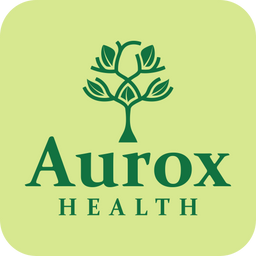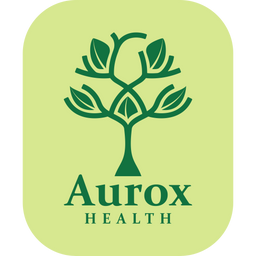Introduction: The Importance of Muscle Health 💪
Muscle health is vital for men, especially those who lead active lifestyles or enjoy regular fitness routines. Strong muscles support not just physical strength but also overall well-being. Healthy muscles help you perform daily activities with ease, improve posture, and reduce the risk of injuries.
Maintaining and growing muscle isn’t just about looking good—it’s also key to long-term health. As you age, muscle mass naturally decreases, which can lead to weakness and mobility issues. By focusing on muscle growth, recovery, and maintenance, you can support your body’s strength and stay active for years to come.
Supplements play a big role in this process in muscle health. Along with a balanced diet and regular exercise, they provide essential nutrients to help muscles grow stronger and recover faster after workouts. This gives your body the support it needs to stay healthy and energized.
From the article you will learn about:
- Protein: The Building Block of Muscle Growth
- Branched-Chain Amino Acids (BCAAs): Enhancing Muscle Recovery
- Creatine: Boosting Strength and Performance
- Magnesium: Supporting Muscle Function and Reducing Cramps
- Omega-3 Fatty Acids: Reducing Inflammation for Faster Recovery
Protein: The Building Block of Muscle Growth 🏋️♂️
Protein is essential for building and repairing muscles. After you exercise, your muscles experience small tears. Protein helps repair those tears, making your muscles stronger and bigger over time. This process is called muscle synthesis. Without enough protein, your body struggles to recover and grow from workouts.
There are different types of protein supplements that can help:
-
Whey Protein: This fast-absorbing protein is popular for post-workout recovery. It quickly delivers the amino acids your muscles need to start rebuilding.
-
Casein Protein: Slower to digest, casein is great for overnight muscle repair. It provides a steady release of protein over several hours.
-
Plant-Based Proteins: Options like pea, soy, and hemp are ideal for those who prefer vegan or dairy-free choices. These proteins still offer all the amino acids necessary for muscle growth.
The amount of protein you need depends on your goals:
-
For muscle maintenance, aim for about 0.8 grams of protein per kilogram of body weight.
-
For muscle growth, increase this to around 1.2 to 2.0 grams per kilogram of body weight, especially if you're doing intense strength training.
Branched-Chain Amino Acids (BCAAs): Enhancing Muscle Recovery 🏃♂️
Branched-Chain Amino Acids (BCAAs) are a group of three essential amino acids: leucine, isoleucine, and valine. These amino acids play a key role in muscle recovery after workouts. BCAAs help reduce muscle soreness and fatigue by speeding up the repair process and reducing muscle damage caused by intense exercise.
One of the main benefits of BCAAs is their ability to support protein synthesis, which is essential for muscle growth and recovery. Leucine, in particular, triggers muscle protein synthesis, helping your body rebuild muscle tissues faster. This makes BCAAs effective for both post-workout recovery and reducing muscle breakdown during long or intense workouts.
For optimal recovery, the best time to take BCAAs is before or after your workout. Some athletes also consume them during their workout to stay energized and prevent muscle breakdown. The recommended dosage ranges from 5 to 10 grams per serving, depending on your body size and workout intensity.
Read: Nutrient Timing Unleashed: Mastering Workouts with Precision
Creatine: Boosting Strength and Performance 🦸
Creatine is one of the most researched and effective supplements for enhancing muscle strength, performance, and power, especially during high-intensity exercises like weightlifting or sprinting. It works by increasing the availability of ATP (adenosine triphosphate), which is the main energy source for your muscles during short, explosive activities. This allows you to push harder during workouts, leading to better gains in strength and muscle mass over time.
Despite its proven benefits, creatine has been surrounded by myths, such as claims that it causes dehydration or kidney damage. However, studies show that creatine is safe for healthy individuals when used correctly. Staying hydrated and following the recommended dosage ensures that you can safely enjoy the benefits of creatine without negative side effects.
To maximize creatine’s effects, follow these practices:
-
Loading phase: Start with a loading phase by taking 20 grams per day (split into 4 servings) for 5–7 days. This helps saturate your muscles with creatine.
-
Maintenance phase: After the loading phase, reduce to a daily dose of 3–5 grams to maintain creatine levels in your muscles.
-
Take creatine before or after workouts with water or a carbohydrate-rich meal to improve absorption.
This routine will help you boost your strength and performance, giving you an edge in your training.

Magnesium: Supporting Muscle Function and Reducing Cramps 🦵
Magnesium is a key mineral that plays a crucial role in muscle function, relaxation, and recovery. It helps regulate muscle contractions, ensuring that your muscles work efficiently during exercise and relax properly afterward. Magnesium also assists in maintaining proper electrolyte balance, which is vital for preventing cramps and muscle fatigue.
When your body lacks magnesium, you’re more likely to experience muscle cramps, especially during or after workouts. Magnesium helps relax muscles by countering calcium, which causes muscles to contract. This balance reduces cramping and prevents your muscles from becoming overly tight or fatigued. Additionally, magnesium aids in energy production, making it essential for sustaining performance and reducing tiredness.
You can get magnesium from foods like:
-
Leafy greens 🥬 (spinach, kale)
-
Nuts and seeds 🌰 (almonds, pumpkin seeds)
-
Whole grains 🌾 (brown rice, quinoa)
-
Legumes (black beans, lentils)
While food sources are ideal, many people don't get enough magnesium through diet alone. In such cases, supplementation can help. Supplements, such as magnesium citrate or magnesium glycinate, are easily absorbed and can effectively support muscle health and prevent cramps.
Read: Conquering the Dad Bod: How Organic Supplements Can Aid in Weight Management
Omega-3 Fatty Acids: Reducing Inflammation for Faster Recovery 🐟
Omega-3 fatty acids are well-known for their anti-inflammatory properties, which can significantly help reduce muscle inflammation and joint pain after exercise. When you engage in intense physical activities, your muscles and joints often become inflamed, leading to discomfort and delayed recovery. Omega-3s, especially EPA and DHA found in fish oil, help lower inflammation, allowing your muscles to recover more quickly and reducing soreness.
By reducing inflammation, omega-3s improve muscle recovery after strenuous workouts. They also play a role in enhancing blood flow to muscles, ensuring that nutrients and oxygen reach your muscles efficiently, promoting faster repair and growth. Additionally, omega-3s help maintain joint health, which is essential for long-term physical activity and preventing injuries.
In addition to aiding muscle recovery, omega-3 fatty acids are excellent for cardiovascular health. They help lower triglycerides, reduce blood pressure, and support heart function—key benefits for anyone focused on maintaining overall fitness and well-being.
For optimal results, aim for 1,000 to 3,000 mg of EPA and DHA per day, either from fatty fish like salmon, mackerel, or sardines, or from high-quality omega-3 supplements. Consistent intake will help you recover faster and protect your muscles from excessive inflammation.
Conclusion: Building a Solid Foundation with the Right Supplements 🏆
Maintaining strong and healthy muscles requires more than just hitting the gym—it’s about providing your body with the right nutrients. Key supplements like protein, BCAAs, creatine, magnesium, and omega-3 fatty acids play a vital role in muscle growth, recovery, and overall performance. These nutrients support muscle synthesis, reduce inflammation, prevent cramps, and enhance energy levels during and after workouts.
However, supplements alone aren't enough. To truly build a solid foundation for muscle health, you need to combine these nutrients with a balanced diet, regular exercise, and adequate rest. This holistic approach will ensure your muscles grow stronger, recover faster, and remain injury-free over time.
Remember, everyone’s body has different needs. Explore supplements that fit your individual goals and muscle health requirements. Whether you’re aiming for strength gains, faster recovery, or long-term muscle maintenance, the right combination of supplements can help you reach your fitness goals more effectively.





